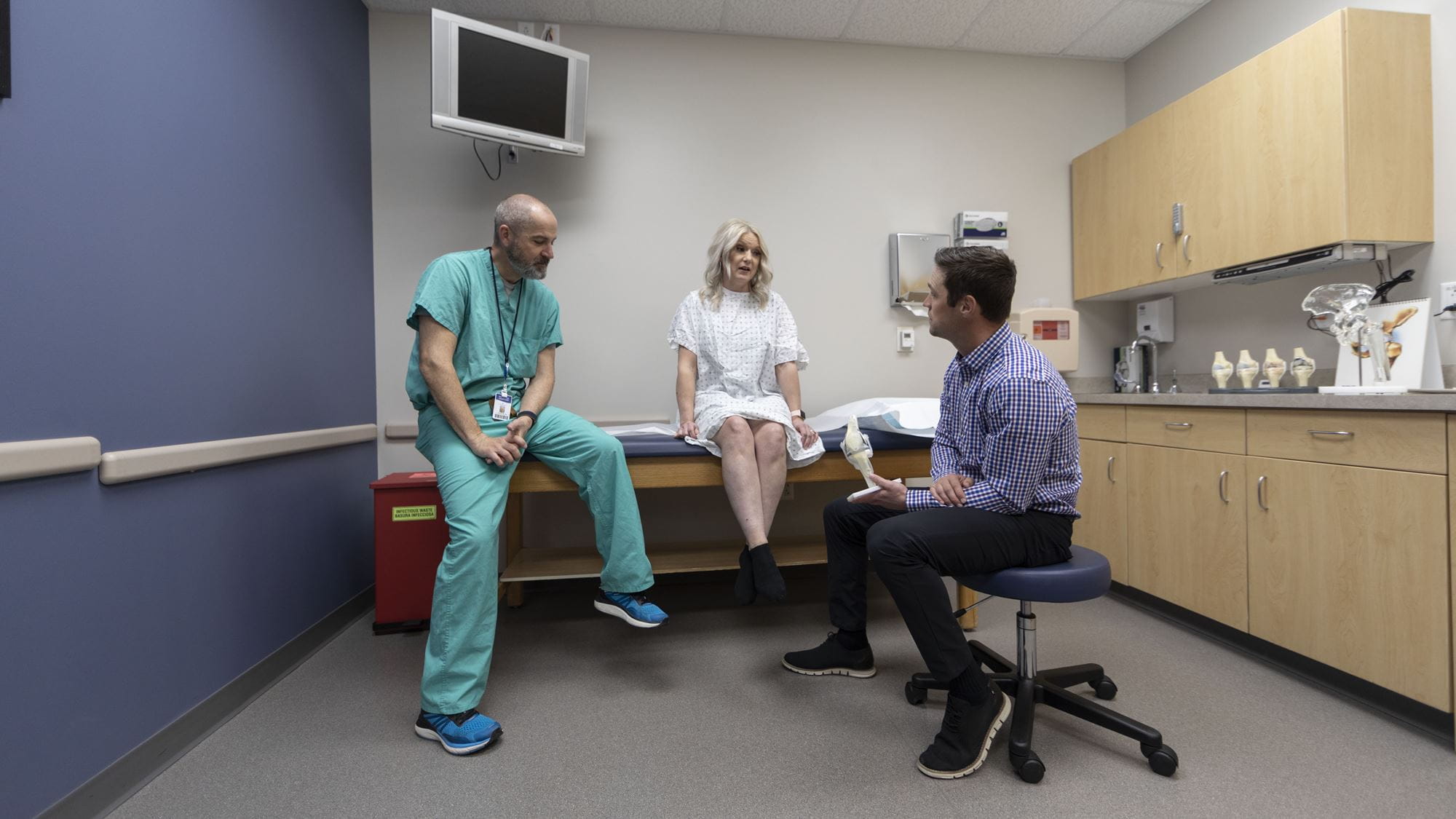What are abductor tears & tendinopathy?
Tendons are the tissues that attach the bones to the muscles in your body. Abductors are the muscles that rotate an arm or leg to the side of the body. The abductor tendons in the hip help the hip open out to the side.
Tendonitis, tendinopathy, and abductor tears can be very painful and might cause other conditions. Usually, the pain will develop over time, and get worse and worse until it is treated. It can even make it difficult to stand or walk in some extreme cases.
Causes
Hip tendonitis, tendinopathy, or abductor tears are often caused by overuse while playing sports that require a lot of jumping. Hip tendonitis can also be caused if the nearby supporting muscles are too weak or too strong, causing a muscle imbalance.
Tendon overuse can also cause tiny micro-tears in the tendon. The body will try to heal these tears, but sometimes the tears are made faster than the body can fix them. As the number of tears increases, they can cause pain from inflammation, or weaken the tendon. In addition, age can contribute to wear and tear on tendons over time.
Diagnosis & Tests, Treatment, & Prevention
Diagnosis & Tests
To diagnose hip abductor tears, tendonitis, or tendinopathy, your healthcare provider will perform a physical exam. During this exam, your healthcare provider may press on the area where the tendons attach to the hip to see if they can feel any hardness or swelling. They may also ask you to move your hip or leg to assess your strength and range of motion.
Before you see the healthcare provider, you might also want to write down some facts about your condition, such as:
- When your symptoms started
- Whether anything you do makes your symptoms better or worse
- Whether your pain is accompanied by swelling, buckling, locking, or snapping
- Whether your symptoms stop you from doing regular activities such as walking, running, standing, or using stairs
- Whether you have you tried any first aid, self-care, or other at-home treatments
If your healthcare provider finds that you have the symptoms of hip tendonitis, tendinopathy, or abductor tears, your healthcare provider may perform an x-ray, ultrasound, or MRI to confirm the diagnosis.
Treatments
Treatment will usually focus on relieving the pain and preventing further injury.
Your healthcare provider will help you determine a treatment plan for your hip tendonitis, tendinopathy, or abductor tears. If your case is mild, you may be able to heal your injury with rest, ice, and medicine.
If your case is more severe, your healthcare provider may recommend medicine, steroid injections, or physical therapy. Some studies suggest that surgery on torn abductor tendons can be helpful, under certain conditions.
Prevention
Although it is no guarantee, warming up, stretching and using proper technique during your regular activities may be able to prevent tendonitis. You may also be able to prevent tendonitis by easing up on regular activities. Tight hamstrings or quads have also been linked to hip tendonitis, so making sure you stretch properly, especially muscles in the thigh, may also help prevent it.
Abductors tears are injuries to the muscles that rotate an arm or leg to the side of the body. Tendinopathy is ongoing pain or inflammation in the tendons that connect these muscles to the bones.
When these injuries happen in the hip abductors, they can cause pain and difficulty standing or walking. These injuries can usually be treated with physical therapy. Sometimes proper stretching can help prevent them.


